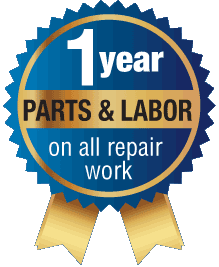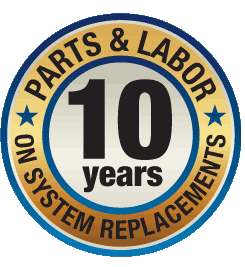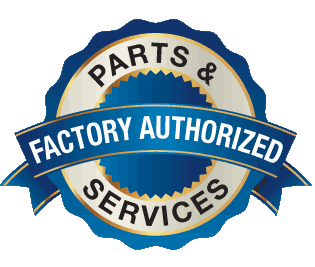Although an air filter is a common need for homes in Houston, choosing the right filter can present a bit of a challenge. It is important to recognize that there are different ratings for filters based on the use of the MERV scale.
Although this might bring TV celebrity Merv Griffin to mind, MERV actually stands for “minimum efficiency reporting value” – a system that rates a filter based on the efficiency with which particulates of various sizes are removed from circulation in a residential setting.
What Do the Numbers Mean?
A higher MERV number represents better filtration, but selecting a filter with a MERV of greater than 12 for a home’s central HVAC system can be problematic. With a MERV above 12, airflow can be restricted, which can reduce the performance level of your HVAC system while also potentially creating stress for major equipment components. Filters with a MERV rating of 13 to 16 are typically intended for medical environments such as hospitals.
An air filter that is MERV 7 or lower is not ideal for central heating or cooling equipment. Your filter’s most important job is to protect the interior equipment of your system from dirt and other particles that infiltrate your airstream. A low-MERV filter is likely to allow much of this debris to reach parts like your evaporator coils, which could seriously impact your home’s comfort levels and energy costs.
Some home improvement companies develop their own rating systems for air filters. Although air filters are typically quite easy to find, it is important to look for a rating comparison if the source uses its own efficiency ratings. It is also important to have accurate filter measurements as you look for the right replacement. You can obtain the dimensions of height, width, and depth from your existing filter or by measuring the recess into which your filter will fit.
Consistent Filter Changes
During the heating and cooling seasons, your filter requires consistent attention. You should check the condition of the filter at least once per month. During heavier system operation, more frequent inspections are recommended. A dirty filter can reduce your equipment’s energy efficiency by 5 percent or more, creating significant potential for a system breakdown. Restricted airflow also impacts an air conditioning compressor dramatically, which could shorten the lifespan of your system. Filter changes are an integral part in maintaining good indoor air quality levels as well.
Filter maintenance is an activity that a homeowner can easily manage without professional support. However, your filter won’t prevent all particulates from passing into the interior of your HVAC system. This requires seasonal maintenance by a qualified HVAC technician to ensure that your equipment achieves optimum performance levels.
For professional heating and cooling services in Houston, contact the experts at Richmond’s Air. We offer:
- Factory authorized service and parts
- High quality equipment and training
- Affordable prices
- Timely response
 Read reviews
Read reviews









